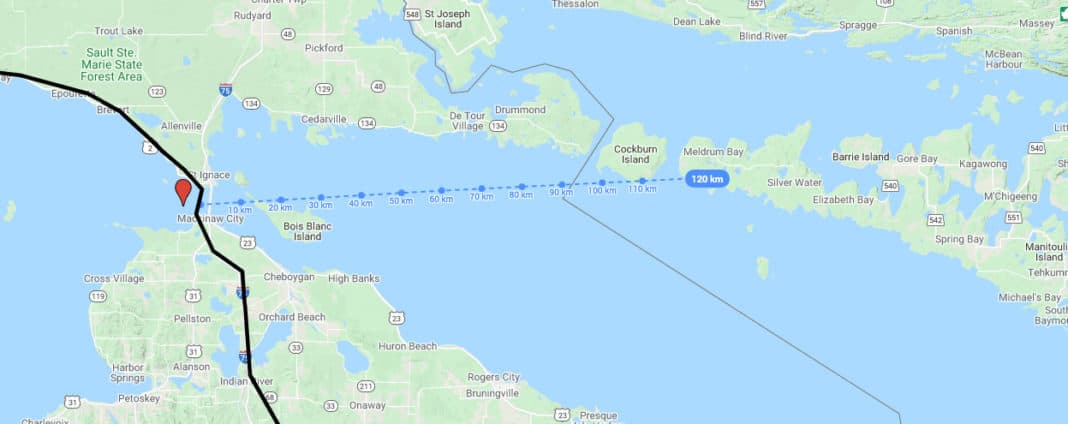MICHIGAN—The plan by Canadian energy giant Enbridge to build a tunnel under the Straits of Mackinac to house a replacement for their submarine Line 5 pipeline that currently lies across the lakebed in the straits has hit a major obstacle as the US Corps of Army Engineers (USACE) has announced that it would be conducting an extensive review of the plan, a move that will significantly delay the project.
The USACE could have opted for a less onerous examination of needs and purposes for the privately-financed 6.4 kilometre tunnel, but opted for an environmental impact statement (EIS) which involves a much more detailed study—one that includes assessment of other alternatives. The environmental impact study could push back planned construction by several years; Enbridge had originally planned for the tunnel to be completed by 2024.
The issue is particularly critical for Canadian economic interests as Michigan Governor Gretchen Whitmer has ordered the submarine lines closed. That line supplies refineries in Sarnia that play a significant role in Canada’s energy supplies.
“I have concluded that an EIS is the most appropriate level of review because the potential for impacts significantly affecting the quality of human environment,” said Jaime A. Pinkham, acting secretary of the army for civil works in a statement to the media.
The project has been opposed by a number of Indigenous tribes, including Wiikwemkoong, as well as literally thousands of individuals and Mr. Pinkam also cited the navigation in a busy shipping channel as a concern.
For its part, Enbridge Energy is “evaluating its timeline” according to spokesperson Ryan Duffy.
“Placing a pipeline in a new Great Lakes tunnel will provide extra layers of safety and environmental protection and make what is currently a safe pipeline even safer,” reads an Enbridge statement, which goes on to cite the creation of jobs and energy security throughout the region.
“We are encouraged to see that the Army Corps of Engineers heeded our call to undertake a more rigorous analysis,” said Whitney Gravelle, chairwoman of the Bay Mills Indian Community. The tribe, which has treaty-guaranteed fishing rights in the straits, “is very concerned that the pipeline threatens our way of life,” she said.





